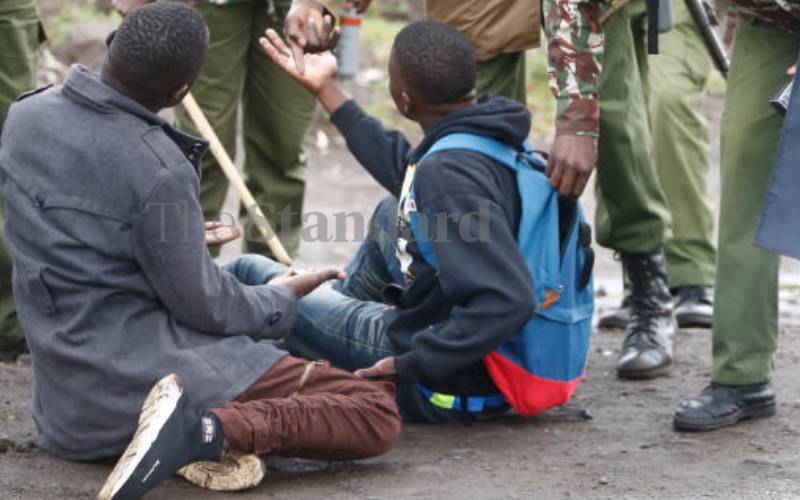×
The Standard e-Paper
Stay Informed, Even Offline

Kenya’s quest for police accountability has been a long journey that has occasioned several policy changes. [Kipsang Joseph, Standard]
Last week, Milimani Chief Magistrate Francis Andayi found a police officer culpable for the death of a 20-year-old who was shot in Nairobi’s Huruma estate. Police had claimed that the death of Nura Malicha Molu in February 2015 resulted from a botched robbery.